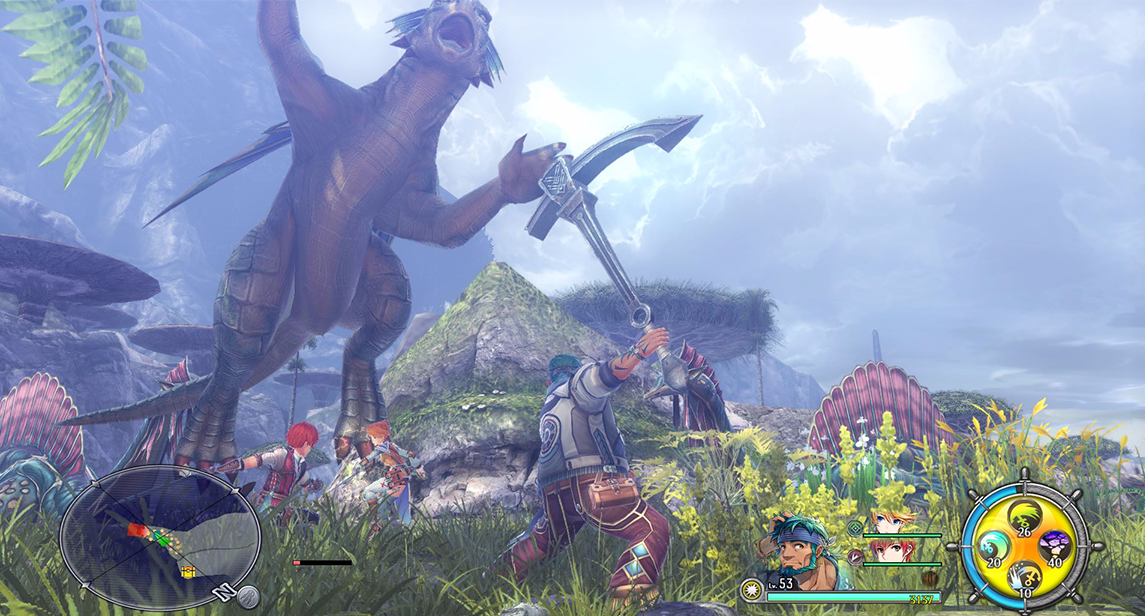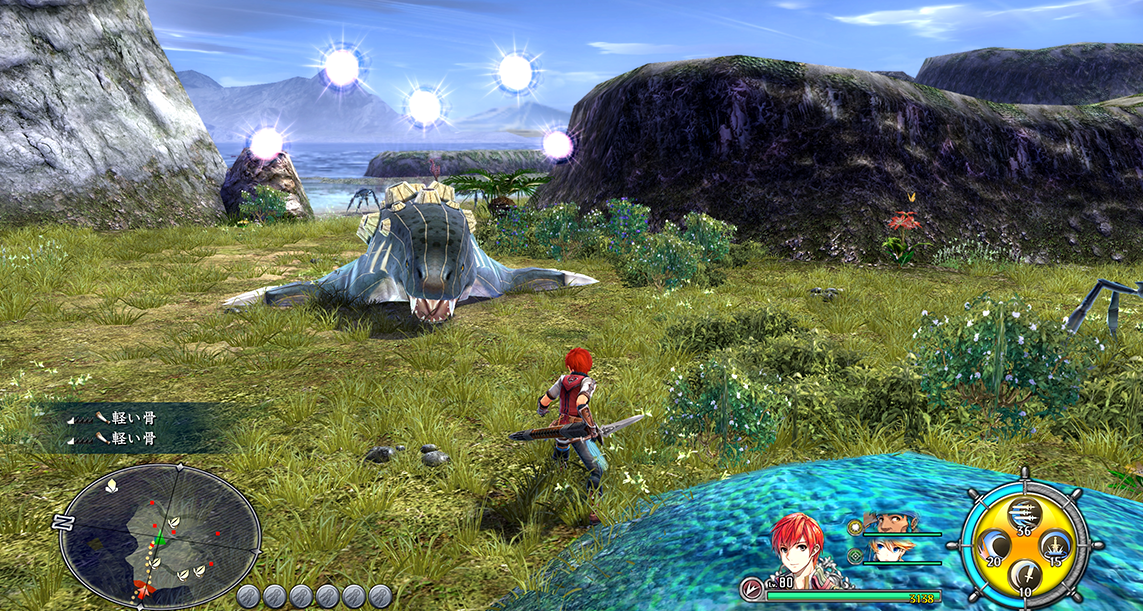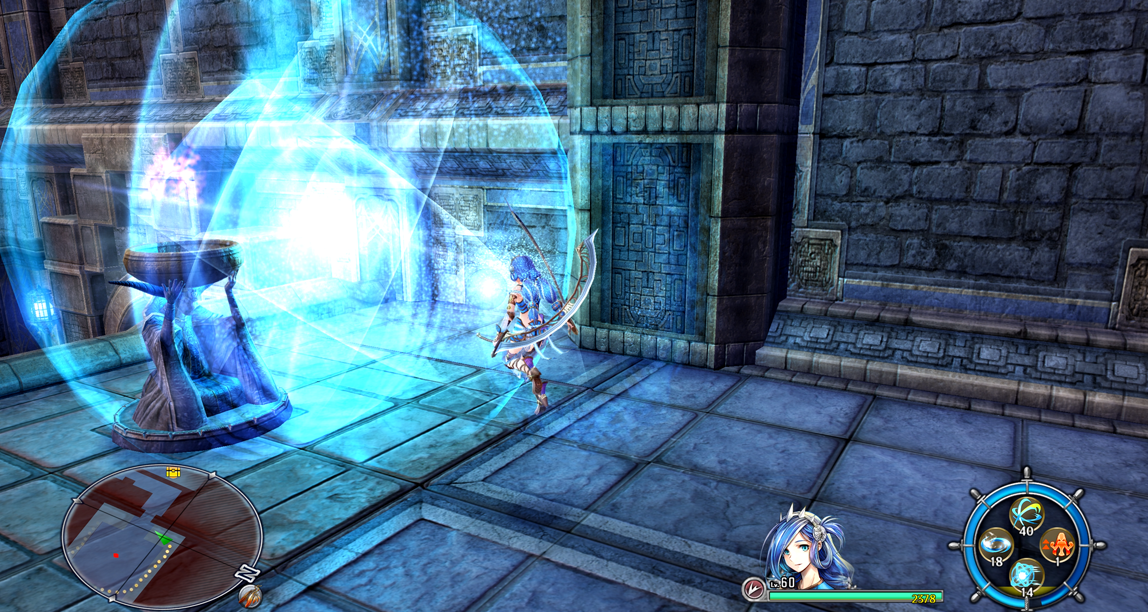As one of the oldest console and PC game studios, Nihon Falcom has--consciously or otherwise--made games that have drawn different age groups. It has devotees who were around for the first Ys game in 1987, and newer fans who discovered the studio through Trails In The Sky, a series with DNA that can be traced back to one of Falcom's earliest games, Dragon Slayer. It's a developer that embraces its RPG and action RPG heritage but isn't afraid to evolve their properties in its sequels and spin-offs. Their forward-thinking approach is further personified through their president, Toshihiro Kondo, who was a fan of the studio before he joined, and was only seven years-old when Falcom released their first game, Galactic Wars. He met with GameSpot recently to share his thoughts about the western release Ys VIII: Lacrimosa of Dana and about Falcom's approach to development.
Gamespot: What was your favorite Falcom game before you joined the company?
Toshihiro Kondo: The reason I wanted to join Falcom was because of one game: The Legend of Heroes III: Prophecy of the Moonlight Witch.
What do you personally think is the aspect of Ys VIII that's going to make it stand out among other chapters of the series?
One thing I definitely think people will bring up is the fact that the gameplay and the story are really well-integrated. Another major part of what makes Ys VIII special and unique is the additional main character, Dana. Once Adol gets to the island near the beginning of the game, he begins to have dreams of Dana. Not only do you see Dana, you're able to play as her. You have a whole separate story going on within Adol's dreams. Eventually, those two separate tales converge, and the player gets to see what happened.

A lot of fans of the series who try to describe Ys to the uninitiated call it one of the better Zelda clones out there. How do you feel about this comparison?
People in Japan do compare the series to Zelda and Xenoblade for some reason, especially Zelda. I see it as a positive comparison. Both Ys and The Legend of Zelda are about the same age. Adol and Link are also similar in that they don't spoken dialogue in their games. While this wasn't originally planned, I like this idea of a non-speaking character. It allows the player to put themselves in the game. I imagine Nintendo sees this the same way with Link.
How do you feel about Falcom being known as a studio that focuses mostly on RPGs and action RPGs?
It's definitely something I notice and feel. As a company, the people who work at Falcom love RPGs and actions RPGs. To be thought of as a company that deals primarily with those genres is an honorable feeling. That said, we don't have any fears or hesitations to do new things.
Has the success of the Nintendo Switch motivated Falcom to create or port games for the platform?
Because of the small size of our studio, we're limited in the directions we can take and games we can make. I feel the Switch as a very Nintendo-styled piece of hardware in the best way possible. At the moment, everything is currently focused on PlayStation platforms and will probably continue to be for the time being. But I can definitely see a future where we would make games for the Switch.

For a series as old as Ys, naturally the combat has evolved overtime from bumping into enemies to manual sword swinging. It's a series that Falcom seems very content adding or evolving at their own pace without letting the market or trends influence it. How does the studio decide when they choose to implement new features or mechanics to the series?
People who work at Falcom are gamers themselves. They play new games but they don't consciously pay attention and consider incorporating new aspects of other games to a new Ys. When there are plans for a new Ys, we come together, talk about things, share ideas, and the game goes from there. We don't really make decisions based by saying, "Okay, let's keep it like this for a while." or "Let's totally change things up and do something different."
Continuing on this topic about the age of the series, Ys VIII has brought together a lot of different Falcom fans from all generations. The Trails of Cold Steel series and Tokyo Xanadu finds most of its fans in their early 20s. Fans of the Ys series and Trails in the Sky are generally people in their 30s and 40s. With Ys VIII, both those kind of disparate groups have really come behind it.
Why do you think that is?
Well, the combat system is really fun, quick, and fast, which I think really appeals to those younger fans. Another reason is the amount of content in the game, story-wise and gameplay-wise. Even though Ys VIII takes about 40 to 50 hours to beat, both demographics have said they enjoyed playing it until the end.
But I assume you didn't start development with a demographic in mind, right?
You're right. The development is more about looking at the history of the series itself and thinking about the kind of stages we want to make, including the setting of where Adol is at the time. One of essential aspects of the series is what I call, "The feeling of the sky." The sky has always represented adventure and openness. We think about these things we create the game and making sure that it fits in well with what's come before. Honoring and preserving that legacy is much more what we're going for when we create these games, rather than trying to appeal to a specific demographic.
